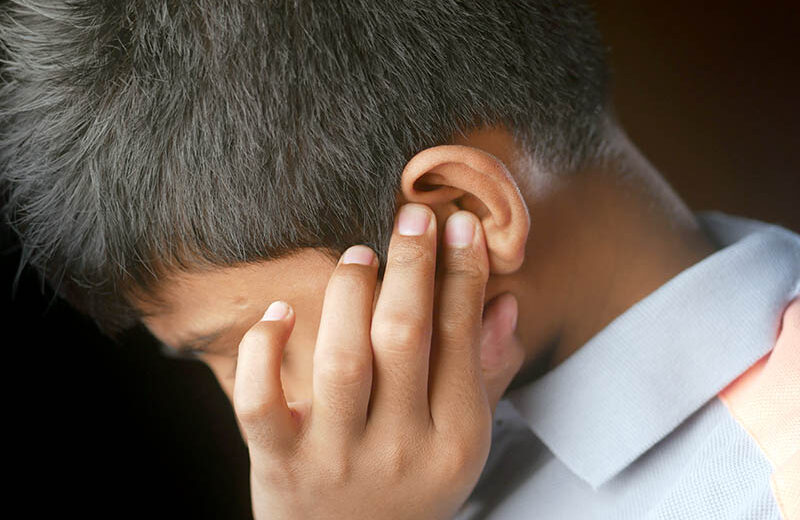Dealing with a cold or the flu can make you miserable. Unfortunately, sinus pressure, ear pressure, and a runny nose may be just the beginning of your issues. Your sinuses comprise your nose, throat, and ears, so when a problem develops in one area, the others will also be affected.
What is the Eustachian Tube?
The tiny passageway that attaches your middle ear to your throat is called the Eustachian tube. It opens when you sneeze, yawn, or swallow. This helps to prevent air pressure and fluid from building up inside your ear canal and eardrum. It’s vital in equalizing the pressure in your ear. When this tube gets blocked, it can affect your hearing, causing pressure, pain, and blockage in your ears.
The Causes Behind Ear Pressure
There are many reasons why your Eustachian tube becomes partially blocked. The explanation for the pressure comes from a combination of mucus secretions and inflammation. Sinus infections, allergies, the common cold, airborne irritants, swimmer’s ear, and pressurized air travel can all cause ear congestion and Eustachian tube dysfunction. The most common symptoms of ear congestion include:
• Feelings of acute pressure or feelings of “fullness” in the ear
• Temporary or persistent ringing in the ears
• Partial or total loss of hearing
• Balance issues
• Experiencing vertigo or dizziness
Home Remedies for Ear Pressure
Fortunately, ear pressure can be effectively treated with simple remedies that you can do at home.
• Aromatherapy. Essential oils like Eucalyptus oil can help unclog sinuses. You can use it alongside steam inhalation, put a few drops in a bowl of steaming water, in your bath water, or inhale it directly from the bottle.
• Drink a glass of water at least every two hours. Drinking fluids like broth, herbal teas, and juices will help reduce mucus.
• Using a hot compress, apply for half a minute, and repeat with minute intervals while laying on your side.
• Valsalva maneuver; pinch your nostrils and blow your nose gently with your mouth closed. You can repeat this as necessary.
• Tugging on your ear lobe while tilting your head to your shoulder.
• Swallowing, yawning, and chewing gum will trigger the muscles in the face that open the Eustachian tubes.
Over-the-Counter Remedies
• Over-the-counter ear drops that contain alcohol will help dry out the ear canal.
• Nasal decongestants can also provide relief by stimulating the sinus passages to open up.
• Neti pot with saline solution will irrigate your nasal cavities, flushing out the blockage.
• Humidifiers keep the air moist, eliminating the dry air that irritates inflamed nasal cavities.
• Filtered earplugs can help balance the pressure in your ears, providing relief.
When is it Time to See a Doctor?
Finding the root cause of Eustachian dysfunction is crucial when over-the-counter and home remedies fail. If the problem remains for an extended time, it can worsen dramatically, leading to a possible rupture. If your condition lasts longer than two weeks, the pain becomes unbearable, or you experience total hearing loss, it would be advisable to seek medical attention right away. Since ear pressure can be associated with so many different conditions, dealing with severe issues requires a doctor to treat them properly.





